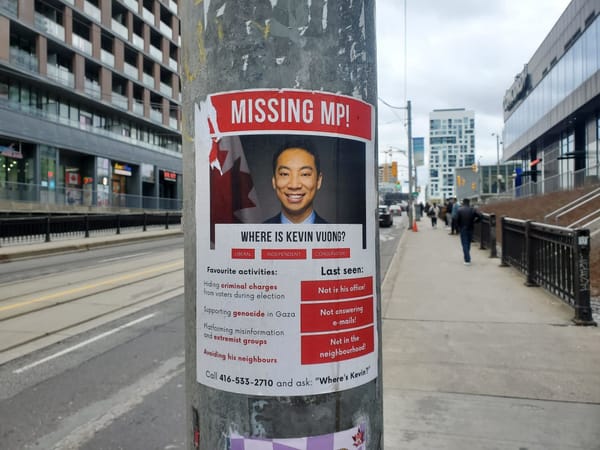There is perhaps no better influencer job in the country right now than being leader of the federal NDP.
First, you get a salary of almost $250,000. Then, there’s the office staff, the communications people and the larger party apparatus, all working to promote you and your ideas.
And, of course, your family gets sent free rocking chairs, with the understanding that you’ll promote their products. Not just any chair, either. We’re talking about a made-to-order, $1,900 rocking chair, which looks like a genuinely nice piece of furniture. Comfortable, stylish, the perfect brand alignment for the leader of a nominally social democratic party to be, uh, promoting on Instagram?
On Tuesday, CBC reported that NDP Leader Jagmeet Singh’s wife, Gurkiran Kaur Sidhu, received the chair from the manufacturer under the explicit understanding that she’d promote it on her Instagram page, which she did. An NDP spokesperson told the CBC that there was no expectation from the company for Singh to post the chair on his own page. However, he did just that over the weekend, also tagging the company that sent them the chair.
Members of parliament and their families are required to report any gifts they’ve received that are worth more than $200, and strictly forbidden from accepting any that “might reasonably be seen to have been given to influence the member in the exercise of a duty or function of his or her office.” The couple has now promised to pay for the chair, and report the gift to the ethics commissioner. Still, promoting an expensive chair you were gifted by a company is dumb and unethical, and shows a fundamental lack of judgement.
This is the same kind of scandal Prime Minister Justin Trudeau loves getting himself into. Taking a trip with a recipient of millions of dollars of government funds is certainly worse than posting about furniture, but there’s a similar line of entitlement running under both actions.
But Singh’s decision also highlights just how closely his style of politics is tied with his image and social media. Singh’s politics are to make good posts, and then win power to put together better ones. Singh’s value as a politician is not being someone who can lead a movement or pass some legislation, but rather an influencer. He’s there to be cool, and put a fresh face on the NDP.
Singh’s 2019 memoir is a powerful tale of surviving truly horrible things, and paints a portrait of someone with real character and understanding. But it’s also a political memoir purposefully light on politics. It’s a book about who Singh is, not where he wants to go.
The implicit promise in this book, released more than a year and a half after he was elected leader, is that somewhere down the road, the policy would be built out around the leader. But that has yet to happen. The party’s latest campaign platform was thick with lofty goals, but thin on how they’d be achieved.
Take climate change: One climate researcher said the Liberal plan — from the party that literally bought a pipeline — was the most credible of them all, because the NDP one was too light on details to be taken seriously enough. This report came up frequently as NDP campaigners went door to door canvassing for votes in the past election.
And because Singh seemingly has no firm and specific vision for what should be done and how to do it, the provincial leaders of his party — particularly in British Columbia and Alberta — get to set the agenda. While Singh may theoretically oppose oil pipelines and old-growth logging, he doesn’t do so in practice because the provincial NDP has decided those things are good and what keeps them in power. Perhaps someone with a bit of vision, or passion for policy, would be able to square this circle. But instead you get Singh evading the topic whenever it comes up for fear of making some western NDPers upset.
The thing is, Canada already has a federal politician who gets by on image alone: the prime minister. In choosing Singh, the NDP hoped to catch the same magic the Liberals did. But following hot trends isn’t how you challenge corporations — that’s how they absorb you into their project, bit by bit. Vague platitudes and the occasional cringey meme won’t substantially transform the country.
Enacting wealth taxes, expanding universal health coverage, disempowering corporations for the benefit of people, decarbonizing the economy and winding down the oil sands — these are all difficult things to accomplish, and they take a fight. But fighting is uncomfortable. It requires making foes, not friends. It demands more than a good line on a debate stage and enthusiastic crowds at a campaign stop.
Singh has been leader for five years, and an MP for three. If he had more to offer than pushing for change through posts, we’d have seen it by now.







Member discussion